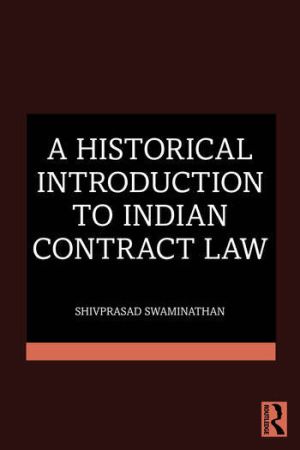
This book offers a genealogy of the core concepts of Indian contract law, tracing their trajectory from the nineteenth century soil of English jurisprudence in which they germinated, to their transplantation into the Indian Contract Act 1872, and the interpretation of the provisions containing these concepts by Indian courts and influential treatise-writers, over the last one hundred and fifty years.
The concepts studied by the book are: i) formation; ii) consideration; iii) privity; iv) capacity; v) consent; vi) frustration; vii) damages viii) stipulated sums; and ix) unjustified enrichment. With respect to each of these concepts, the book seeks to provide an account of the state of the English law at the eve of the drafting of the Act, with a particular emphasis on the impact the civil law had on the concept and a close study of the legislative history of the provisions of the Act codifying the concept, with a view to uncovering what the drafters had originally envisaged.
Based on extensive doctrinal and archival research, the book offers: